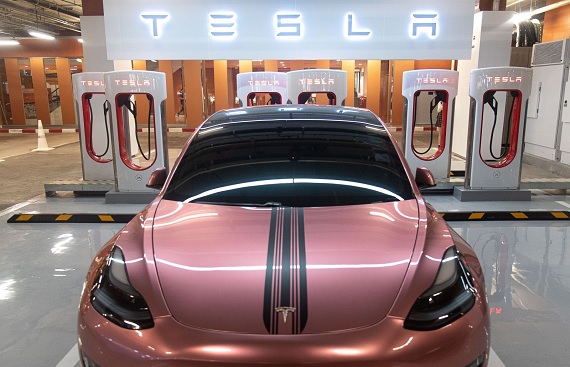India approves New EV policy, Paving way for Tesla's Entry
By
siliconindia | Friday, 15 March 2024, 12:54 Hrs

The government has unveiled a fresh electric vehicle (EV) policy aimed at bolstering Tesla's endeavors to establish a presence in India. Under the new policy, import taxes on specific electric vehicles will be reduced for companies pledging a minimum investment of Rs 4150 crore ($500 million) and establishing a domestic manufacturing unit within the nation.
Under the revised policy, companies must invest a minimum of $500 million in India. They will have a three-year window to set up local manufacturing plants for electric vehicles (EVs), sourcing at least 25 percent of components domestically. Firms meeting these requirements will be allowed to import up to 8,000 EVs annually, with a reduced import duty of 15 percent applicable to vehicles priced at $35,000 and above. India currently imposes import tariffs ranging from 70 percent to 100 percent on imported cars, depending on their value.
Interested companies are required to commit a minimum investment of Rs 4150 crore (USD 500 Mn), with no maximum investment limit. Manufacturing facilities in India must be established within three years, commencing commercial production of e-vehicles and achieving a maximum of 50 percent domestic value addition (DVA) within five years. Domestic Value Addition (DVA) denotes the percentage of localized components used in manufacturing. Companies must attain a localization level of 25 percent by the third year and 50 percent by the fifth year. A customs duty of 15 percent (as applicable to Completely Knocked Down units) will be enforced on vehicles with a minimum CIF value of USD 35,000 and above for a period of five years, contingent upon the manufacturer setting up manufacturing facilities in India within three years.
The duty exemption on the total imported EVs would be capped at the investment made or Rs 6484 crore (equivalent to the incentive under the PLI scheme), whichever is lower. If the investment amounts to $800 Mn or more, a maximum of 40,000 EVs can be imported, not exceeding 8,000 per year. Any unused annual import quotas can be carried forward. The company's investment commitment must be supported by a bank guarantee instead of the customs duty exemption. Failure to meet the DVA and minimum investment criteria outlined in the scheme guidelines will result in the invocation of the bank guarantee.
